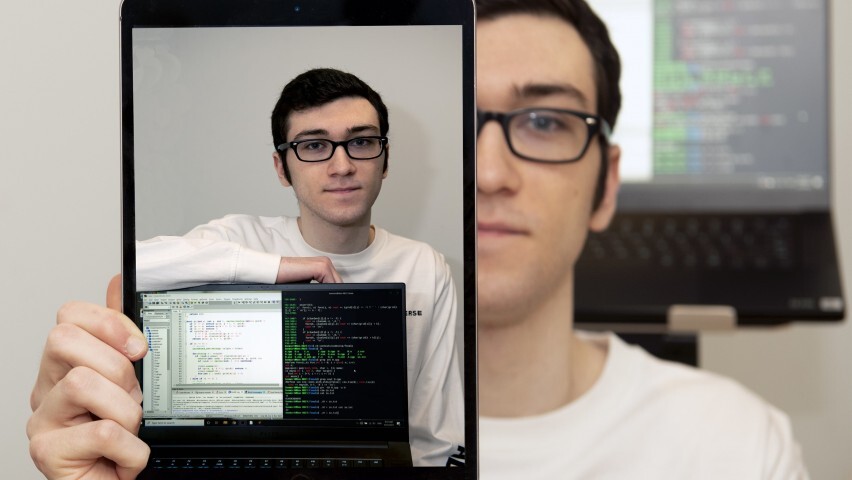This article was written by Arminder Singh and John Figueras.
Ben Mirtchouk, a recent graduate from the Stevens undergraduate computer science program and currently pursuing Stevens graduate school, won first place in TCS CodeVita held from February 2021 until March 2021, a coding competition that Guinness World Records has deemed the “world’s largest computer programming competition.” In doing so, Mirtchouk has made history by being the first U.S. winner of the competition.
Tata Consultancy Services started the CodeVita competition in 2012 as a means to spread awareness about coding, and the contest has only grown in popularity ever since. The questions, according to the Tata Consultancy Services website page describing the history of the contest, range from algorithmic problems to real world application challenges. These challenges have to be solved under a time limit as part of the challenge and the top three finalists are given $10,000, $7,000, and $3,000 respectively depending on their placement.
Mirtchouk was introduced to the competition through Handshake, a website aiming to help college students find jobs and other career opportunities. Mirtchouk felt quite prepared given his history of competitive coding going as far back as 8th grade but still kept his expectations in check.
During the first round of the competition, Mirtchouk didn’t expect to advance. In an email to The Stute, Mirtchouk explained having “little chance of making it to the top levels, [he] entered Round 1 with very little stress and low expectations.” When Mirtchouk found out he was advancing to the second round, despite finishing in the “middle of the pack,” he believed that he could potentially advance to the world finals in the top 25. During the second round, Mirtchouk described he went through technical difficulties and didn’t read some of the problems carefully enough. Despite the rocky round, he got 7th place, securing him a spot in the world finals. The final round consisted of 10 questions with varying point values, from 30 to 200. Noticing that it was going to be impossible to answer every question, Mirtchouk ultimately ended up answering 5 questions, with their point values adding up to 630, which was enough to just barely win first place ahead of two other university students from ETH Zürich in Switzerland and the University of New South Wales in Australia.
Mirtchouk noted that his victory came as a welcome surprise to him and his family. He went into the competition not expecting to win and not looking at the prize money. Mirtchouk explained that winning the competition gave him the chance to reconnect with members of his extended family “to congratulate [him] and this provided a fantastic opportunity to catch up with all of them.” He even befriended a competitor, and is “very grateful to the competition for providing a chance to make such global connections.” Mirtchouk stated that he appreciated the opportunity to problem solve during the competition and does not plan on stopping his ventures into competitive coding. He explained, “More than the prospect of monetary prizes or brief Facebook fame, I enjoy these competitions because of my passion for programming and solving tough problems.”

Be First to Comment